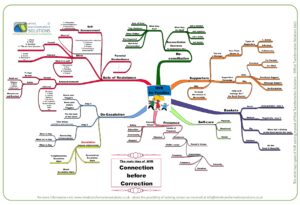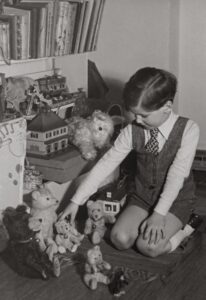A way of rebuilding and strengthening family connection
NVR stands for Non-violent Resistance  .
.
It is known because of Mahatma Gandhi ![]() , Martin Luter King
, Martin Luter King ![]() , and Rosa Parks
, and Rosa Parks ![]() among others, who fought for freedom and peace refraining from any form of violence against oppressors.
among others, who fought for freedom and peace refraining from any form of violence against oppressors.

Professor Haim Omer ![]() and his team started using NVR principals to help people improve their relationships especially with children.
and his team started using NVR principals to help people improve their relationships especially with children.
They argued that if NVR was successfully used to undertake significant social changes, it could work in making changes within families too.
He first applied the NVR approach to deal with his teenage sons who, in his own words, taught him all he knew about parental helplessness.
NVR is particularly useful when you need to know:
- How to rebuild connection between family members
- How to stop walking on eggshells.
- How to change a war zone into a joyful and peaceful household.
- How to stop blaming yourself for everything.
- How to feel empowered.
- How to strike a balance between caring for children and looking after yourself.
- How to heal your own childhood wounds, so you are free to successfully deal with your child and not with your own unfinished childhood business.
If you are interested in:
- NVR training for parents or facilitators
or
- you are already NVR facilitator, supporter, parent and you seek consultation or supervision
FOR THOSE WHO REALLY WANT TO KNOW MORE ABOUT NVR
(and have few spare minutes)
Professor Omer’s take on the NVR ideas spread around the world.
A person credited with introducing his brand of NVR into the UK is Dr Peter Jacob.
Professionals in the UK adopted NVR to group work so parents who struggle with their children’s challenging behaviours could benefit from learning the NVR approach in a supportive atmosphere of a group.
This work has been undertaken by a team of dedicated clinicians from Oxleas NHS Trust led by Elisabeth Heismann and Lis Day. Those two family therapists authored and published a manual of the first NVR multifamily parenting programme. It has been run since 2007.
I (Dorota Rospierska MSc) can proudly say that I have been a part of the Oxleas NVR Project since 2009.
NVR is based on the following concepts:

- Parental presence
- Parental values
- Recruiting active supporters
- De-escalation
- Reconciliation gestures
- Baskets
- Announcement
- Sit-in
- Self-care
In the course of the programme or in the individual work with a family, the above concepts are applied to the particular needs of a family. Please do go to the blog section where all the principals and their application are explained.
Why was NVR “invented”?
Didn’t we have enough of the psychological tools to help parents and children to alleviate their suffering or help them to develop necessary interpersonal skills?
YES and NO.
Indeed there are many useful approaches and I would advocate using all of the classic parenting practices, as long as they work!
NVR is typically used for those situations where all other methods failed.
Recently it has been adapted to less extreme problems. One of the reasons for its adaptability is, that NVR has not been manufactured by marketing specialist.
It has developed organically as a response to needs of parents who have been asking for support and advice how to deal with contemporary problems exhibited by their children (self-harming, addiction to phones, involvement with gangs, sexual exploitation, high anxiety, violence towards family members, etc.).

It sounds such a cliché but the contemporary teenagers do indeed face a dramatically different reality than their parents born in the 70’s. Wouldn’t you agree?
Can we really meet our children’s needs by using a blueprint of parenting given to us by our own parents?
So we have attempted to use what we learnt from our parents about parenting however often we fail to notice that a gap between our childhood experiences (for instance: people in their 40ies) and our children’s has become enormous.

Look at cars. Nowadays they remind more of a computer than a car. I remember from my childhood a view of my dad with his head under a bonnet fixing something. With contemporary cars, you rather need masters in IT than mechanical skills. My dad’s knowledge of mechanics is valuable yet not enough to deal with new cars.
NOW, should he have only IT skills it would not be enough to fix a car either.
My point is, coming back to parenting, I do appreciate traditional parenting values passed on to us by our own parents yet those are not enough to respond to challenges faced by our children here and now. We need to, based on the foundation given by our parents, update our values and practices to be able to guide, help and discipline our children in a way which responds to their contemporary needs.
With NVR we can map out the way.
The case study :
Mother and father of two girls came to me to discuss how to help their older daughter. She was struggling with low mood and occasional self-harming.
It unravelled in the conversation that the so called low moods were accompanied by outbursts of anger and frustration. The girl would demand things and services in the most rude way, NOW. If she felt dissatisfied with mum’s attempts to please her, the girl would accuse mum of not loving her enough. Mum would then rush to express her undying feelings and prove it with some other gadget or fulfilment of her daughter’s request which previously had been denied. Mum would do anything to make sure her girl had all reasons to be happy. Frustratingly, the more she did the less happy the daughter seem to feel…
This cycle of low moods, demands, giving in, angry outbursts started after the girl had been assaulted. The assault did not lead to any physical injury however it shook the whole family’s world. All apart from the girl’s younger sister seemed to have become affected by this incident. Mother, father and the older daughter lost their sense of security and trust that they can be safe in the world.
Naturally, such a strong reaction to a relatively minor incident suggests that there has been an unresolved traumatic experience in parents’ past, which became triggered by their daughter’s attack. Mum would often be in tears at a thought of what happened to her child. She would become very determined to compensate for all the suffering by making her daughter feel extra safe and happy. But it is hard to convince your child she should feel safe and happy if you are weeping 5 times a day.
Mum grew more and more emotional, irritable and forcefully cheerful in turns. It came to the point where mum took time off work due to stress.
Dad’s way of dealing with the situation was to withdraw to his room. He would be very happy working long hours. The less he was available at home the more demands for attention, emotional support, services were directed to mum who became even more exhausted under the pressure. With the exhaustion came the resentment because no matter how hard she tried to make the child happy still she was failing – the girl seemed to be determined on staying miserable.
A breakthrough came when she started her counselling sessions. Everyone was relieved. However, after some time the child came back to her swings of low mood, high mood, outbursts and demands. The pain of the disappointment was palpable.
Mum was walking on eggshells most of the time. She was not able to go to the toilet without being followed by the kids demanding something from her as if the time reversed and they again became demanding toddlers.
Father would be invisible as if he gave up on an idea that there was anything meaningful he could do in that situation. The younger daughter allegedly “happy” started barking at mum and more or less becoming a smaller version of her sister. That was the point when parents felt that the family would break up if they did not do something, NOW and quickly.
In short, we established that very often the communication between Mum and daughter was getting very loud and heated – at one point Mum would literally shout. The girl would moan about how horrible the mother she had.
Dad would either be not yet present at home when the argument erupted or he would discreetly disappear from the scene. The younger child would be occupying herself in her room.
The NVR intervention:
First NVR move was to shift mum and dad’s positions. Mum was coached how to de-escalate her own emotions (anger, sadness, guilt, resentment, hurt etc.) and STOP herself from engaging in shouting matches with her teenage daughter. Dad was coached to first de-escalate his own feelings of fear, sadness, hurt etc. so he was able to bear the child’s outbursts and stay wherever the escalation was taking place.
Then he was advised about how to respond verbally to the escalation after it finished. It was done in accordance with the parents’ preferences and personalities. When they experienced their strength and power to control their own emotional states they started feeling hopeful about the future of their family.
With father more present and mum less verbal at the time of escalation the dynamic in the family shifted. Dad felt more empowered to actually deal with things and mum felt more of a respected authority figure rather than a cross between her daughter’s nurse and servant (as she described it).
Further work on de-escalation and parental presence continued to the point where parents could work hand in hand together (mutual supporters) at responding to any inappropriate expression of emotions on their daughter’s part.
Feeling empowered and confident, they were more than ever able to truly respond to their child’s needs. The more emotionally contained the parents and the child became the more time and attention the younger child could get too.
The fire of escalations and uncontrolled emotions was extinguished.
Further work on strengthening the relationship between parents, parents and children could begin.
Reconciliation gestures in the form of small acts of love became a part of the family’s interactions. Parents were able to consciously think about their values and systematically work on passing them on to the girls, e.g. “Providing safety is the main duty of a parent. Any acts of self-harm are against that value”. Parents announced and acted on their declaration that they would do all that was in their powers to help their daughter to work through her feelings so she could feel well and happy. AND parents protested against self-harming. It was not going to be a part of that family’s emotional communication any longer. Full stop (that is called an announcement).
The girl reassured by parents’ persistent, strong presence, even if she wobbled emotionally, started learning from them how to regulate her own emotional state and her behaviour. She found her place in a family hierarchy and realized that her needs would be met when she request help in an appropriate and healthy way.
Now, if the child presents with some rude behaviour, parents respond to both layers of such communication – the emotional “what has been going on for you recently so you behave in a harsh manner towards others?” and relational – “we hear your distress and are ready to help you with whatever you struggle with AND we refuse to accept the rudeness. The rudeness needs to go”.
To explore more about NVR ENTER NVR BLOG ![]() section of our website
section of our website
If you are interested in:
- NVR training or
- you are already NVR facilitator, supporter, parent and you seek consultation or supervision
